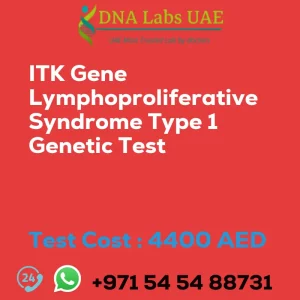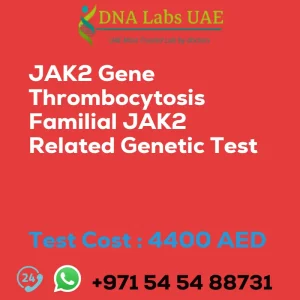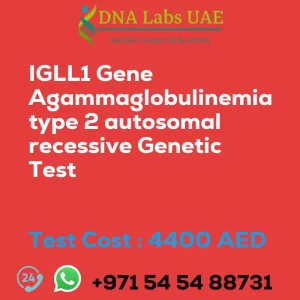SMARCAL1 Gene Schimke immunoosseous dysplasia Genetic Test
Test Name: SMARCAL1 Gene Schimke immunoosseous dysplasia Genetic Test
Components: Blood or Extracted DNA or One drop Blood on FTA Card
Price: 4400.0 AED
Report Delivery: 3 to 4 Weeks
Method: NGS Technology
Test type: Hematology
Doctor: Hematologist
Test Department: Genetics
Pre Test Information: Clinical History of Patient who is going for SMARCAL1 Gene Schimke immunoosseous dysplasia NGS Genetic DNA Test. A Genetic Counselling session to draw a pedigree chart of family members affected with SMARCAL1 Gene Schimke immunoosseous dysplasia NGS Genetic DNA Test gene SMARCAL1
Test Details: The SMARCAL1 gene is responsible for providing instructions for making a protein called SMARCAL1. This protein is involved in DNA repair and maintenance of DNA structure. Mutations in the SMARCAL1 gene can lead to a rare genetic disorder called Schimke immunoosseous dysplasia (SIOD). SIOD is a multisystem disorder characterized by short stature, kidney disease, immune system abnormalities, and skeletal abnormalities. It is inherited in an autosomal recessive manner, meaning that an individual must inherit two copies of the mutated SMARCAL1 gene (one from each parent) to develop the disorder.
NGS (Next-Generation Sequencing) genetic testing is a technique used to analyze multiple genes simultaneously, providing a comprehensive view of an individual’s genetic makeup. In the context of SMARCAL1 gene and SIOD, NGS genetic testing can be used to identify mutations or variations in the SMARCAL1 gene that may be responsible for causing the disorder. By identifying these mutations, NGS genetic testing can help confirm a diagnosis of SIOD in individuals with symptoms suggestive of the disorder. It can also be used for carrier testing in individuals with a family history of SIOD, allowing them to understand their risk of passing the condition on to their children. Overall, NGS genetic testing for the SMARCAL1 gene is an important tool in the diagnosis and management of SIOD, providing valuable information for affected individuals and their families.
| Test Name | SMARCAL1 Gene Schimke immunoosseous dysplasia Genetic Test |
|---|---|
| Components | |
| Price | 4400.0 AED |
| Sample Condition | Blood or Extracted DNA or One drop Blood on FTA Card |
| Report Delivery | 3 to 4 Weeks |
| Method | NGS Technology |
| Test type | Hematology |
| Doctor | Hematologist |
| Test Department: | Genetics |
| Pre Test Information | Clinical History of Patient who is going for SMARCAL1 Gene Schimke immunoosseous dysplasia NGS Genetic DNA Test. A Genetic Counselling session to draw a pedigree chart of family members affected with SMARCAL1 Gene Schimke immunoosseous dysplasia NGS Genetic DNA Test gene SMARCAL1 |
| Test Details |
The SMARCAL1 gene is responsible for providing instructions for making a protein called SMARCAL1. This protein is involved in DNA repair and maintenance of DNA structure. Mutations in the SMARCAL1 gene can lead to a rare genetic disorder called Schimke immunoosseous dysplasia (SIOD). SIOD is a multisystem disorder characterized by short stature, kidney disease, immune system abnormalities, and skeletal abnormalities. It is inherited in an autosomal recessive manner, meaning that an individual must inherit two copies of the mutated SMARCAL1 gene (one from each parent) to develop the disorder. NGS (Next-Generation Sequencing) genetic testing is a technique used to analyze multiple genes simultaneously, providing a comprehensive view of an individual’s genetic makeup. In the context of SMARCAL1 gene and SIOD, NGS genetic testing can be used to identify mutations or variations in the SMARCAL1 gene that may be responsible for causing the disorder. By identifying these mutations, NGS genetic testing can help confirm a diagnosis of SIOD in individuals with symptoms suggestive of the disorder. It can also be used for carrier testing in individuals with a family history of SIOD, allowing them to understand their risk of passing the condition on to their children. Overall, NGS genetic testing for the SMARCAL1 gene is an important tool in the diagnosis and management of SIOD, providing valuable information for affected individuals and their families. |








